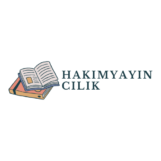Writing nonfiction books can be one of the most rewarding endeavors for any aspiring author. I’ve always believed that sharing knowledge and insights can spark change and inspire others. Whether you’re an expert in your field or simply passionate about a topic, your unique perspective can offer immense value to readers seeking information and guidance.
In today’s world, where information is abundant yet often misrepresented, crafting a well-researched and engaging nonfiction book is essential. It’s not just about presenting facts; it’s about weaving a narrative that captivates and educates. Join me as we explore the key elements of writing nonfiction, from developing your idea to structuring your content effectively. Let’s dive into the art of transforming your expertise into a compelling book that resonates with readers.
Key Takeaways
- Understanding Nonfiction: Nonfiction is centered on factual content aimed at informing or educating readers, encompassing various genres like biographies, self-help, and essays.
- Types of Nonfiction: Familiarize yourself with different nonfiction categories to select the best format for your writing, from memoirs to textbooks.
- The Writing Process: Focus on extensive research and effective structuring to create a well-organized narrative that resonates with your audience.
- Voice Development: Establish a unique voice and authentic tone in your writing to build trust and connect with readers effectively.
- Engagement Strategies: Use questions, examples, and diverse formats in your work to captivate your audience and foster a deeper understanding of the content.
- Publishing Options: Evaluate traditional versus self-publishing routes to determine the best approach for distributing your nonfiction book while maximizing control and profits.
Writing Nonfiction Books
Nonfiction encompasses a wide range of writing styles and purposes, primarily focused on presenting factual information. By exploring different forms of nonfiction, I can effectively convey my knowledge and insights to readers.
What Is Nonfiction?
Nonfiction refers to literature based on facts, real events, and real people. It aims to inform, educate, or persuade an audience. Examples of nonfiction include biographies, essays, self-help books, and journalistic works. Each element in nonfiction serves to enhance understanding, support arguments, or provide instruction.
Types of Nonfiction Books
Different types of nonfiction books cater to various interests and purposes. Here’s a closer look at some common categories:
- Biographies: Life stories of notable individuals that offer insights into their experiences and achievements.
- Memoirs: Personal accounts of specific events or periods in a writer’s life, emphasizing emotional truths.
- Self-Help: Guides directed at personal growth, typically providing strategies for improving various aspects of life.
- Essays: Short pieces expressing the author’s viewpoint or analysis on a particular topic, often published in collections.
- Travel Writing: Accounts that explore different places, cultures, and experiences, blending personal perspective with factual information.
- Cookbooks: Instructional books that provide recipes, culinary tips, and insights into food preparation.
- History Books: Works that detail past events, significant figures, or eras, often supported by thorough research and analysis.
- Textbooks: Educational resources used in academic settings, presenting comprehensive information on specific subjects.
By understanding these categories, I can choose the right approach for my nonfiction writing, ensuring it meets my objectives and resonates with readers.
The Writing Process
The writing process for nonfiction books encompasses several critical stages, including thorough research and effective structuring. Each step contributes to crafting a compelling narrative that resonates with readers.
Researching Your Topic
Researching your topic forms the foundation of nonfiction writing. Engaging with various sources, including books, scholarly articles, interviews, and reputable websites, ensures comprehensive knowledge. Identifying key themes or concepts aids in the focus of your writing. Utilizing organization tools, such as citations or notes, keeps information accessible. Validating facts before inclusion, especially for contentious points, enhances credibility. Balancing primary and secondary sources enriches your perspective.
Structuring Your Book
Structuring your book establishes clarity and guides readers through your narrative. Outlining major sections helps identify main ideas and their connections. Utilizing chapter formats, like chronological, thematic, or problem-solution, streamlines the flow of information. Incorporating subheadings within chapters enhances readability by breaking down complex ideas. Using bullet points or lists for key takeaways improves retention of crucial information. Planning the beginning, middle, and end ensures a logical progression that aligns with your objectives.
Tips for Effective Writing
Effective nonfiction writing hinges on clarity and engagement. The following strategies enhance your writing process.
Developing Your Voice
Establishing a unique voice makes nonfiction content more relatable. Craft a consistent tone reflecting your personality, perspectives, and expertise. Consider these points:
- Authenticity: Write honestly to build trust. Readers connect more with genuine narratives.
- Style: Select a style that matches your subject matter. An academic approach suits scholarly topics, while a conversational style engages general audiences.
- Perspective: Use the first person to share personal experiences, making complex information accessible.
Engaging Your Audience
Captivating your audience increases the impact of your nonfiction book. Place an emphasis on reader involvement by employing these methods:
- Questions: Pose reflective questions to stimulate curiosity and encourage critical thinking.
- Examples: Incorporate relevant examples or anecdotes, enhancing relatability and understanding.
- Variety: Use diverse formats within your writing, such as lists, infographics, and case studies, to maintain interest and provide visual breaks.
By focusing on developing your voice and engaging your audience, you create compelling nonfiction that resonates and informs effectively.
Publishing Insights
Exploring the publishing landscape is vital for nonfiction writers. Understanding the options and strategies available enhances the chances of success in reaching a wider audience.
Traditional vs. Self-Publishing
Traditional publishing involves submitting manuscripts to established publishers. This route provides benefits like professional editing, design services, and distribution networks. Publishers typically cover production costs and promote the book, yet they retain a significant portion of the profits.
Self-publishing, on the other hand, offers more control and higher profit margins. I manage the entire process, from writing to marketing. Platforms like Amazon Kindle Direct Publishing and IngramSpark facilitate this route. While I bear the upfront costs for editing, design, and marketing, I also retain all rights and profits from sales. Each method requires different levels of investment and time commitment, and both paths can be effective based on my goals.
Marketing Your Nonfiction Book
Marketing is crucial for the visibility of a Writing Nonfiction Books. I focus on developing a targeted marketing plan that resonates with my audience. Utilizing social media platforms, I share engaging content, such as quotes and insights, to attract potential readers. Building an email list allows me to communicate directly with interested individuals and provide updates about my book.
I also consider leveraging book launch strategies, like virtual events or blog tours, to create buzz before the release. Collaborating with influencers and bloggers in my subject area can widen my reach. Additionally, investing in targeted ads on platforms like Facebook or Amazon promotes my book to specific demographics interested in nonfiction topics. Effective marketing efforts can drastically enhance the book’s exposure and increase reader engagement.
Mastering the Writing Process
Writing nonfiction books is a journey that allows me to share knowledge and inspire others. By focusing on well-researched and engaging content I can cut through the noise of misinformation and make a meaningful impact.
Understanding the various types of nonfiction and mastering the writing process empowers me to craft narratives that resonate with readers. Whether I choose traditional publishing or self-publishing I can navigate the landscape effectively to reach my audience.
With the right marketing strategies in place I can elevate my work and connect with those who will benefit from my insights. Embracing this process not only enhances my writing skills but also enriches the lives of my readers.

